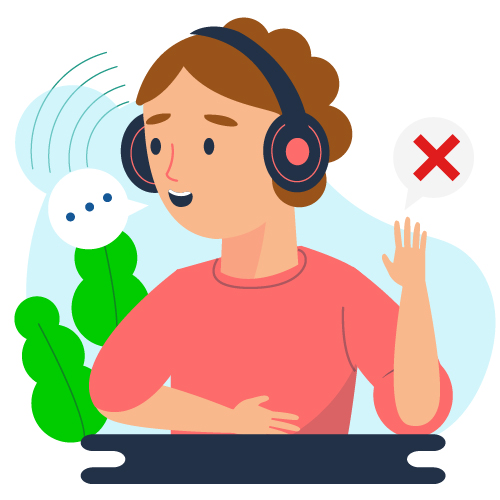Managing time in reading section of IELTS
We would guess that 99% of individuals remark that the most difficult aspect of reading is managing time. I disagree that this is ever the case; we believe that the most difficult aspect of reading is obtaining the correct answers.
You may simply test this by taking a reading test and giving yourself as much time as you need before reviewing your result. This might take up to two hours. If you don’t get all of the answers right, or at least 37/40, the issue isn’t time; it’s your ability to answer the questions correctly.
If you get 37 or 38, I’m sure when you check it’s because you didn’t read the question thoroughly enough! Those that get 100% on their reading practice and exam are in the minority.
If you can complete the reading in one and a half hours and answer the majority of the questions correctly, you should now consider ways to cut that time down to roughly 50-55 minutes. You have 60 minutes to complete 40 questions. So that’s around a minute and a half every question. It is not much time, but it is plenty for you to achieve 7 or 8 if you have solid language abilities and tactics.
What happens if you take your time finishing the reading?
If it takes you more than one hour to complete 40 questions on the exam, you will fail. I was talking to someone the other day, and she mentioned that she had five questions remaining at the end to which she had to guess the answers. That is, her grade was not truly out of 40. Her score was actually out of 35, which means she could only make 5 faults to obtain a Band 7 and 1 mistake to get a Band 8.
You can see how it would be tough to get band 7 or 8 if you did not finish the test on time.
Another thing that happens as time runs out is that you begin to panic. You will make a lot of blunders if you are panicking. You will not discover the answers. You’ll begin to alter your responses. And if you’re doing pen-paper, the examiner won’t be able to read them, and you’ll become really confused. As a teacher and an examiner, I’ve witnessed all of this. If the examiner cannot read your response, they will just mark it incorrectly.
You can also become confused and write the wrong answers in the wrong spot. I know kids who have done this out of desperation. Of course, it’s incorrect if your replies are in the wrong spot. Examiners do not have time to go through your answers and rearrange them!
You may also become easily distracted. You may begin to observe other pupils and what they are doing. This is something I’ve heard. Some kids told me how they panicked and then saw other students who appeared to be doing quite well, which made them even more concerned.
You can also become confused and write the wrong answers in the wrong spot. I know kids who have done this out of desperation. Of course, it’s incorrect if your replies are in the wrong spot. Examiners do not have time to go through your answers and rearrange them!
You may also become easily distracted. You may begin to observe other pupils and what they are doing. This is something I’ve heard. Some kids told me how they panicked and then saw other students who appeared to be doing quite well, which made them even more concerned.
Being distracted increases your chances of making more mistakes, making it difficult to focus on what you’re doing and getting the appropriate answers. It’s a downhill cycle; you start with a tiny problem, which eventually grows into a greater problem.
What are your options?
It is quite feasible to complete the reading exam in under 60 minutes and achieve a high band score. You may be thinking right now, “No, it isn’t,” but I assure you, it is really doable. They would not expect you to accomplish it if it were not feasible.
Here are some of the reasons why it may be or appear to be difficult for you.
- There might be an issue with your command of the English language.
- Perhaps you don’t have a large enough vocabulary.
- Perhaps you don’t understand how reading works or how sentence patterns are generated.
- Perhaps your general English abilities, or particularly your reading skills, are insufficient for the band you want to join.
- It is possible that your IELTS reading speed tactics are inadequate.
- Maybe you’re not very adept at skimming, scanning, or finding keywords.
- Perhaps you haven’t practiced enough. (I see this all the time.)
- Or maybe you’re the type of person that panics and can’t manage your anxieties.
All of these may be improved with practice and the proper skills. Reading technique is essential, and the more you practice, the higher your score will get.
Everything will change as a result of practice. You will quickly realize when you can easily get your score.
You’ll be more methodical in your approach to the questions.
The questions will appear to be simpler.
You’ll feel more in control of what you’re doing (no more panic) and more confident.
One minute will suffice to locate the solution.
If it isn’t, you’ll be content to go on to the next and return later.
Once you feel this way, you should be obtaining scores in the same band (or, preferably, a band higher) than the one you want. You are now prepared for the IELTS reading test.
Returning to the timing issue:
DON’T WASTE TIME AFTER YOU’VE ADDRESSED THE ABOVE ISSUES AND CAN ANSWER THE QUESTIONS – THIS IS ESSENTIAL. Everything you do should immediately assist you in locating the answers. This implies that it MUST be relevant to the queries. If it’s not, DON’T DO IT!
If you can’t find an answer, keep looking. You have three chances to go back and double-check.
- at the conclusion of the section.
- towards the conclusion of the passage
- If you work quickly, you should finish the test in 50/55 minutes.
Don’t rush around like a headless chicken, scanning the words. It is not methodical.
Fix language and vocabulary problems by studying more, next refine your reading skills, and finally, don’t squander time. It’s as easy as that.



